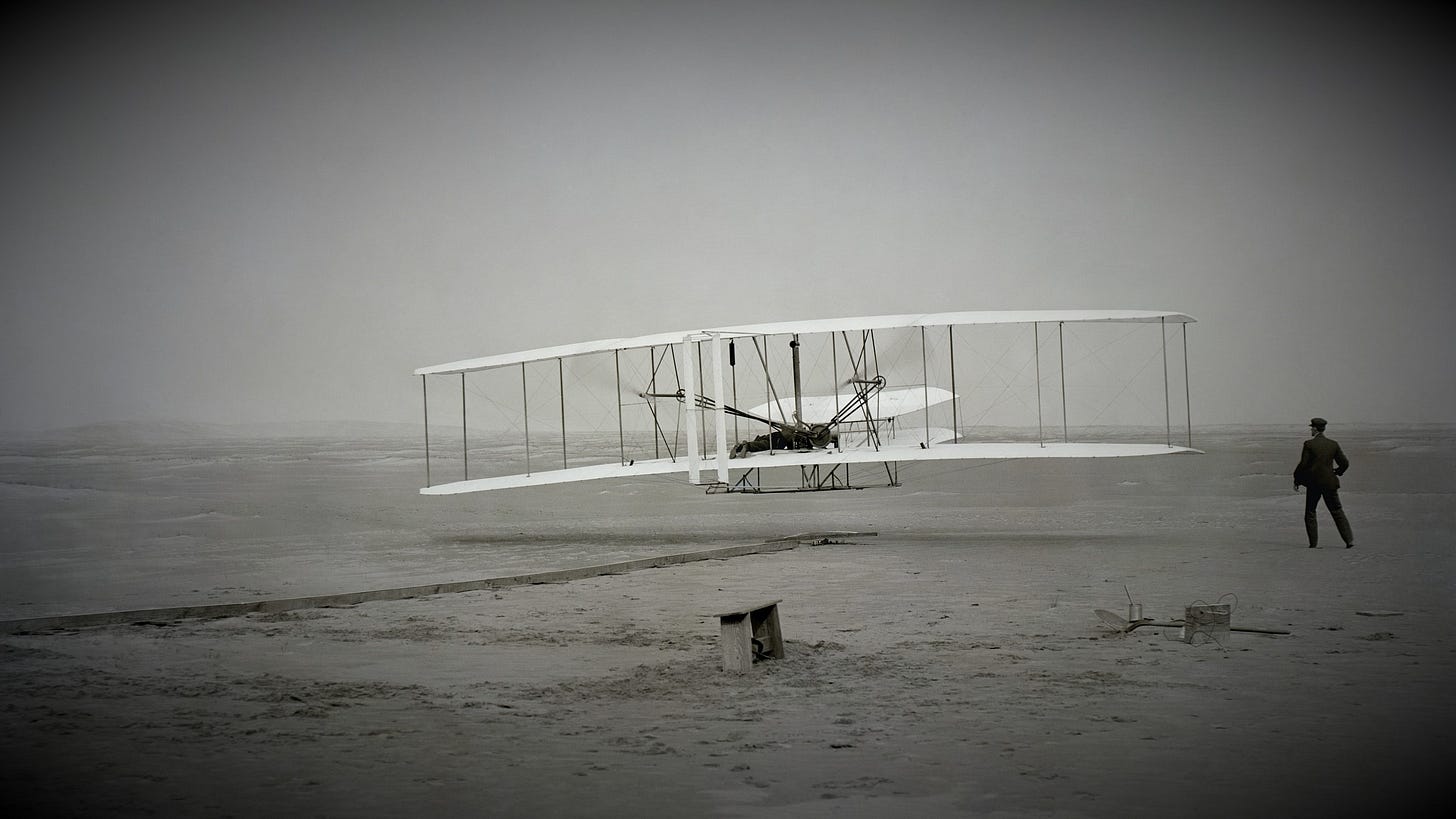I want to be an inventor
And since we're on the subject, what is an invention?
I’m happy you are here reading my Friday story. Want to see more content like this? Please become a paying subscriber. You’ll receive exclusive content every Monday along with other private tidbits.
Already subscribed? Thank you! May I interest you in sharing the love?
As always, if you can’t afford to pay, let me know and I’ll comp you for free. I appreciate you, no matter what. ~JRC
Since as far back as I can remember, I have admired inventors. Watching those whacky professors in movies and on TV thrilled me. And actual inventors in real life I find inspiring. Creating something new and exciting feels transformative. And I've always wanted to be the guy that did such things; I became a scientist, and more recently a self-identified maker, for this love of invention.
Alas, I have yet to create my own inventive invention. I have made several "mods" to existing ideas, enough to call them my own. But this tinkering doesn't qualify me as an inventor. Or does it?
To this end, I've been wondering what an "invention" is.
More specifically, is there a difference between a novel invention and a novel modification? How do we know something is an actual invention and not a rehash of the old? Does it matter?
To learn more, I did what anyone these days would do: I consulted that all-powerful of inventions, the Google search engine.
According to the infallible canon of wisdom Wikipedia (**clears throat**), an invention is "a unique or novel device, method, composition or process."
That leaves a lot of room for interpretation.
There are several different types of invention, ranging from technological to sociopolitical to cultural. Here, I am thinking about the tech side of innovation, as in cool gadgets and stuff that we can hold and use. After all, I don't aspire to invent a political movement; there's enough of that going on already.
Not to diminish the other definitions of invention, but this is a maker newsletter, so I'm trying to stay on point, that's all. So when I say I want to invent, I mean invent new stuff. I guess there's too much of that too, but I digress.
Technological invention usually means the creation of a new and often transformative "thing." The quintessential example in the 21st Century—you guessed it, the smartphone. And not any smartphone; no, we mean the iPhone.
Introduced in 2003, the iPhone was an invention to beat all inventions. And it radically changed the way we work and play. Ubiquitous - iPhones and iPhone-wannabes are in the hands and minds of the vast majority of adults in the developed world (for better or for worse).
If that isn't transformative, I don't know what is. But is it an invention?
The iPhone didn't come out of thin air. In reality, it is a computer, and computers have been around for centuries. The modern electronic iterations came into their own in the late 70s and early 80s. But these all, past and present, are computers, nonetheless. The iPhone happens to be an extraordinary evolution of the computer, no doubt.
Miniaturization is the true novelty of the iPhone and its kin. We can now use a globally connected, mega-powerful computer that fits our pockets. So in this instance, invention is about taking existing tech and making it smaller, faster, and insanely more powerful.
Another example: the internet - now that was out of thin air, right? Guess again. The internet evolved from ever-increasing telecommunications technology. We were sending data over telecom infrastructure back when the web was nothing more than a spider's trap. This transformative technology had its roots in what had become everyday communications stuff. But through concerted effort and an extreme level of R&D, the world is now dependent upon (and trapped within) the world wide web. That its euphemistic title is more apropos now than ever is not lost on me.
But the internet, as transformative as it has been, still came from something - not nothin'.
Are any inventions completely new? As in, has anything been invented that has no decipherable connection with stuff that preceded it? The wheel? Rolling logs came first. The internal combustion engine? Steam before this, and gravity machines before that. Antibiotics? That was a discovery and not an invention. Or was it? The powered airplane? Gliders and aforementioned engines before that.
Every invention, it would seem, has its roots in the reality of our world. But that doesn't preclude it from being novel. Building on the previous doesn't negate an invention's inventiveness. After all, it is in the collective wisdom of our species that we realize what can be.
We stand on the shoulders of giants. ~ attributed to Sir. Issac Newton (and several other smartypants before him, of course)
So back to the original question: what makes an invention?
I don't know. But I still want to be an inventor.
Until next time.
JRC



I for two do not know. But , keep trying. Lots of fun reading old and new ideals.
keep trying, one day you will become an inventor